Posted on 10/20/2016
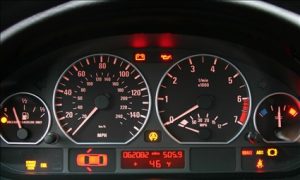
OBD-II is the new standard of Onboard Diagnostic Systems and are in most cars and trucks on the road today. The OBD-II is a diagnostic computer that is hooked up to your car to control engine functions and diagnose problems. If there is a problem with a component of the vehicle, a trouble code will be given. Here some of the most common trouble codes, what they mean, what symptoms to look for, and some solutions to solving the problem, from the OBD Codes.com trouble code database. P0440 What Does it Mean? P0440 is the trouble code given when the evaporative emission control system has malfunctioned. The EVAP system contains the gas cap, fuel lines, carbon canister, purge valve, and other hoses within the car. The EVAP emission control system prevents fuel vapors from escaping from the fuel system of a vehicle Symptoms: T ... read more
Posted on 7/18/2016
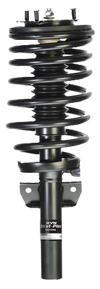
Shocks and struts are two very similar parts that serve similar purposes. Both shocks and struts absorb the bumps in the road and keep the tires of the vehicle on the ground, creating a smoother ride. A car without shocks or struts would bounce all over the road and be nearly undrivable, as well as dangerous. Shock Absorbers Shocks are the oldest form of suspension still used today. They are similar to pistons - tubes filled with hydraulic fluid or gas with a rod inside, connected to the chassis of the car. When the car rolls over a bump, the piston forces the air or fluid through the tube. Only a limited amount of fluid or air can move at a time, which, combined with springs, resists vehicle movement and prevents the chassis of the car from bouncing rapidly. Struts Struts are the evolved version of shocks. They are a component that combines the spring with a shock absorber to reduce production costs and simplify construction. Struts also serve as ... read more
Posted on 7/18/2016
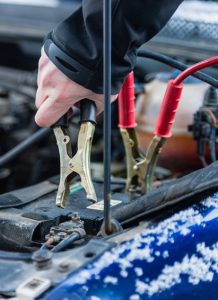
It’s almost that time of year….Cold temperatures and warm fires, sweaters, hats, and gloves. Those rough mornings that we have to get up from our cozy, warm beds and go outside to get into our cold, cold cars. And then…click….click…the car battery is dead. Problems with car batteries are high on the annual lists of the top 10 most common breakdown faults. Not that they need to be. Thanks to newer technologies, modern car batteries provide much better cold starting performance and longer life than ever before. But, the danger is still real, and it happens to the best of us. Heat is Tough on Car Batteries Last month’s article was about how HEAT is a battery culprit, so we know that the summer months start the breakdown process. [When temps outside reach 90 degrees, the temperature under the hood of your car can reach 140 degrees, wreaking havoc on the battery. Each time the thermometer gets that high, your car’s battery fluid evaporates faster & corrosion accelerates too -- whi ... read more
Posted on 7/18/2016
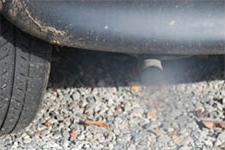
A catalytic converter (“cat”) is an exhaust emission control device which chemically - - using a catalyst - - converts toxic compounds of car exhaust into harmless compounds. The result is a reduction of pollutants exiting the car's exhaust. Catalytic converters have been standard since the mid 1970s. What Is A Catalyst And How Does It Work? A catalyst is a substance that causes or speeds up a chemical reaction without being affected by it itself. In a catalytic converter we usually find two different kinds of catalysts: Reduction Catalyst – First step of catalytic converter which helps to reduce the Nitrogen Oxide (NOx) emissions. Oxidation Catalyst – Second step of catalytic converter, it helps to minimize the Hydrocarbons (HC) and Carbon Monoxide (CO) emissions. Inside of the catalytic converter the catalysts - - palladium, rhodium, and platinum - - are coated onto a ceramic honeycomb or bead which then is placed int ... read more
Posted on 7/18/2016
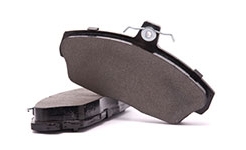
Squealing, squawking, and squeaking brakes can not only be annoying; these noises can indicate a potentially serious problem with your braking system. Squeaky brakes can panic a driver, as they are arguably the most important safety feature in every automobile. Sometimes the concern is warranted, as the brakes are going bad. Other times, there may be nothing wrong at all. Be safe, take your car to the professionals at either Ripley's Muffler & Brakes location for a free brake check, and let them determine if there is cause for concern. Common Causes of Squealing Brakes Squeaky brakes are common. With multitudes of moving parts, weird noises of some sort or another are heard on a daily basis. There are many reasons that can cause your brakes to squeal or grind. Here are a few of the most common: Worn Out Brake Pads & Shoes -- Worn out brake pads is the most common reason for squeaky brakes. Over time the brake pad surface wears ... read more